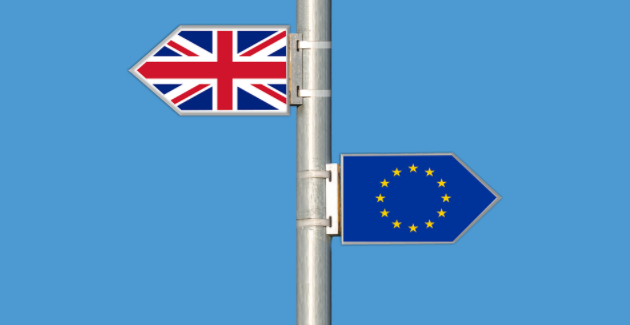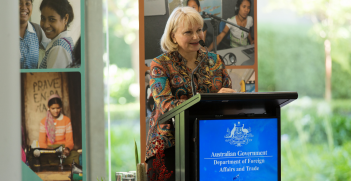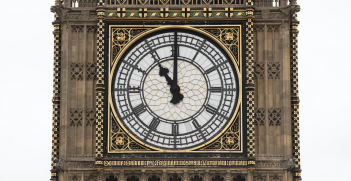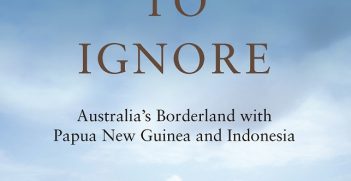The EU-Australia Relationship: Plus ça Change...

Australia’s relationship with the EU has come a long way but room for improvement remains, including the absence of a formal trade agreement. Australian policymakers mustn’t let Brexit delay closer EU-Australia ties.
Australian thinking and policy on European integration has, from the outset, been driven by two convictions: first, that the fundamental objectives of the European project are sound and in Australia’s broad interests; second, that an ‘open’ version of regional integration would best suit Australian economic interests.
The first of these usually prevails as a priority, and the second is responsible for much of the noise and trouble in the history of the bilateral relationship.
Historical documents reveal these twin convictions—and their uneasy coexistence—from the first Australian encounters with the European integration process. On the one hand, there was no denying the benefits of the peace and security that the member states proposed to bring about through European integration. On the other, the particular form that European integration took presented clear challenges for Australia—especially once the UK became formally involved and acceded to the European Community in 1973. The development of the Common Agricultural Policy, its impact on Australia-UK trade and later on Australian third country markets meant that the initial stages of the bilateral relationship were difficult. Despite a clear basis for like-mindedness internationally, formal progress in the relationship between Canberra and Brussels was slow.
In this context recent developments are noteworthy. Australia-EU relations have come a long way in the last decade, with a treaty-level political agreement (the Framework Agreement) and high-level commitment to a bilateral trade treaty. This is not before time. A cursory glance at the EU map of international trade agreements reveals that Australia, together with New Zealand, remains one of the only countries with which the EU does not have some kind of formal trade relationship, in spite of solid economic relations. The diplomatic consensus is that this relationship’s time has finally come, and serious bilateral work with partners inside the EU (the Netherlands, Germany and France, to take three examples) now underpins a constructive relationship.
No wonder then that there is some Australian head-scratching over the Brexit vote of June 2016 and the triggering of Article 50 by the British government to formally commence negotiations to leave the EU. Just as the long shadow of British accession and its ramifications for Australia-EU relations appear to have given way to cooperation—perhaps genuine goodwill—the UK has once again called the terms of Australian relations with the EU28 into question with the proposed split. It is, at best, inconvenient.
The practical challenges for Australia are clear: additional (complex) trade negotiations with the UK once the terms of Brexit are known; major trade partners which are more concerned with each other than with distant third countries; and disruption to the Australia-EU relationship at a time when it had actually improved. There is also the danger that Australia becomes implicated in the politics of Brexit by being put forward as some kind of alternative partner in a post-EU British foreign and trade policy.
Australian policymakers would do well to blow this notion out of the water. It is difficult to see the benefits for third countries of an ‘either/or’ scenario with the UK and the EU, which could so easily arise from Brexit politics. This is not to suggest for a moment that the Australia-UK relationship is not important, or that Australia is uninterested in the final terms agreed by the UK and the EU27. But Australia has long been incidentally involved in UK-EU politics, and so far it has done precisely no good. Australia is not being forced to choose between the UK and the EU, and Australian economic interests do not have to be collateral damage a second time.
Brexit also needs to be put in perspective. Euroscepticism is demonstrably on the rise, and there is no doubt that the European project has taken a serious hit. Its future direction is the subject of debate and political contestation across European capitals. Multispeed Europe is now a live possibility—perhaps a necessity. Yet European integration does not rise or fall with the fortunes or commitment of the UK. There are 27 other member states, and the original six were committed to integration well before UK accession in 1973. Third countries might expect to witness plenty of European soul-searching about how the EU will function—perhaps with new impetus after the election of President Macron in France—but European integration is not at an end.
The EU is potentially being transformed, and not only its membership. These changes may matter more to Australia than whatever messy divorce terms the UK and the EU27 can agree. The impact of Brexit on Australia will depend on a range of factors, not least British domestic politics, and these may not be clear for years. The material impact on Australia may ultimately be negligible. Australia could not afford to be so sanguine about the fate of the European project, a key plank of the post-war liberal international order and the source of peace and prosperity across a continent for more than half a century.
The Australia-EU relationship has rarely had more diplomatic attention, press coverage or public interest. There is plenty of scope for noise and trouble: perhaps as the historical differences surface in the bilateral trade negotiations, or from the politics of Brexit, or both. The relationship is stronger than at any other time in its history. Australian policymakers will continue to see the logic and necessity of European integration. They will also have to deal with the ‘downstream’ consequences of EU politics for third countries, where outcomes will not always align with Australian interests. Plus ça change…
Jacqueline Lo is executive director of the Australian National University Centre for European Studies.
Annmarie Elijah is associate director of the Australian National University Centre for European Studies.
This article originally appeared in The EU and Australia: Shared Opportunities and Common Challenges, published on the occasion of the inaugural EU-Australia Senior and Emerging Leaders’ Forums in Sydney on 2–6 June 2017. The AIIA is part of the international consortium selected to deliver the EU-Australia Leadership Forum project, a three-year initiative funded by the EU.





